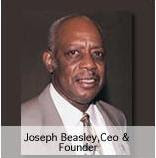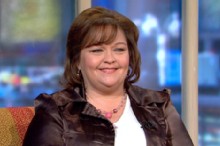Q&A: US primary elections

The candidates hoping to win the White House in November's presidential election are taking part in the series of elections known as the primaries and caucuses.
This is the process by which supporters of the Democratic or Republican parties, in each US state, say which candidate they would like to see representing their party in the presidential election.
How does it work?
CURRENT KEY DATES
3 Jan: Iowa caucuses
8 Jan: New Hampshire primary
15 Jan: Michigan primary
19 Jan: Nevada caucuses; South Carolina primary (Rep)
26 Jan: South Carolina primary (Dem)
29 Jan: Florida primary
5 Feb: some 20 states including California, New York, New Jersey
Quick guide: US election
Primary and caucus dates
A caucus guide
Each state gets to send a certain number of delegates to the parties' national conventions in the late summer, where each party's nominee is formally chosen - and the primaries and caucuses determine which candidate those delegates vote for.
Broadly speaking, the more voters from a given state give their backing to candidate X, the more delegates pledged to support candidate X will be sent from that state to the national convention.
Why do Iowa and New Hampshire come first?
No particular reason, it just happened that way.
It's sometimes argued that they don't deserve it, because they are not representative of the US as a whole - they are small (especially New Hampshire), they don't have big cities, and their populations are not very diverse.
The counter-argument is that both states have politically educated voters who put candidates through a lot of tough questioning.
What is Super Tuesday?
It's a day (a Tuesday!) when a lot of states hold primaries or caucuses simultaneously.
The practice began in the 1980s.
In 2000, 16 states held primaries on 7 March, at which about 60% of all delegates were up for grabs.
In 2004, Super Tuesday split in two. There was a Mini-Tuesday (or Super Tuesday I) on 3 February, followed by a Super Tuesday II on 2 March. California, Ohio and New York all held their votes on Super Tuesday II.
On 5 February 2008, at least 22 states will take part in "Super-Duper Tuesday", including California, Illinois, New York and New Jersey.
Caucus or primary - what's the difference?
Caucus procedures vary according to state law.
In Iowa's caucuses, voters meet in private homes, schools and other public buildings in more than 1,780 districts, or precincts, to discuss the candidates and the issues.
They then elect delegates to the county conventions. County convention delegates elect delegates in turn to state conventions, where delegates to the national conventions are chosen.
At Iowa's Democratic caucuses, the voters publicly divide into groups, gathering in different corners of a room to show their support for the different candidates, and delegates are allocated accordingly.
Voters at the state's Republican caucuses take part in a secret ballot, the results of which inform the allocation of delegates.
In primary elections, such as take place in New Hampshire, all registered voters in a state directly vote for their preferred candidate.
Why is the primary season starting early this year?
From 1972 to 1992 the exercise began in late January (or occasionally early February) and the nominations were not usually settled until the first Tuesday in June, when California, New Jersey and Ohio held their primaries.
In other words, the primaries used to take four months to yield a result. This time they may take only one.
Does that matter?
To spend four months criss-crossing the country meeting voters was a good test of a candidate's strengths and weaknesses, and it gave Americans lots of opportunities to decide which politician they liked best.
Also, a little-known candidate who did well in the early caucuses or primaries had a chance to attract financial support, and organise a strong campaign. The new timetable leaves very little time for an outsider to gather momentum.
Why is the change happening?
Some states felt the established system gave too much prominence to the states which began the selection process, and too little to those at the end of the process, so in the 1990s they began to move their primaries and caucuses forward.
This just increased the disadvantage of coming last and gave states more of an incentive to rush to the front of the queue.
States such as Iowa and New Hampshire, which have traditionally come first, responded by moving their own events earlier still.
Have the Democratic and Republican parties attempted to stop states changing the electoral calendar?
Yes.
The Democratic Party is punishing Michigan and Florida by refusing to accept their delegates at the national convention. So neither state's Democratic primary will count. (The main Democratic candidates have said they will not campaign in either state.)
The Republican Party is penalising Florida, Michigan, New Hampshire, South Carolina, and Wyoming, by reducing their quota of delegates by half.
Do these penalties matter?
They could, in theory, if it's a close race.
The Democrats have closed the door to about 8% of delegates, the Republicans to about 5%.

























0 comments:
Post a Comment